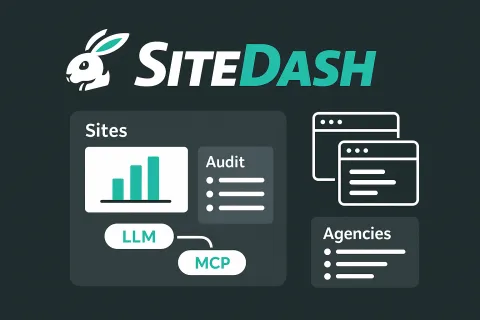SendBySound.com

Sharing a short piece of text between devices has never been as smooth as it should be. Most of us default to emailing ourselves, trying to AirDrop across incompatible ecosystems, or reading a password aloud while hoping no one mishears the fifth character.
Tools like QR codes already solve part of this problem. They work well, and they are widely supported. But sometimes you want something even simpler or just a little more fun.
That is where SendBySound fits in.
What It Does
SendBySound is a free web app at SendBySound.com that transfers text through sound. Open the site on two devices, type your message, and press send. One device plays a short sequence of tones, the other listens and decodes the text. Once the page loads, it works entirely offline.
There is no pairing, no accounts, and no installation.
How It Compares to QR Codes
QR codes are great in most situations. They are fast, reliable, and familiar. SendBySound is simply a different way to approach the same problem, and it can be useful in places where a sound-based interaction feels more natural.
A few examples:
- When the receiving device does not have a camera, or the camera is already in use.
- When you want to share across a short distance without positioning devices relative to each other.
- When generating or displaying a QR code is not as convenient.
- When you want a hands-free option.
- Or simply because sending little chirps between devices is fun.
SendBySound is not a replacement for QR codes. It is another tool you can reach for depending on the situation.
Everyday Uses
- Sharing a WiFi password without typing it out.
- Sending a link from a laptop to a phone without emailing yourself.
- Passing a verification code when your authenticator is on another device.
- Sharing small bits of information in classrooms or group settings.
If the devices can make and hear sound, you can use them.
Privacy and Simplicity
All processing happens locally in the browser. Nothing is sent to a server. The short-range nature of sound keeps transmission limited to the nearby environment.
Try It Out
If you're looking for a quick, offline-friendly, and slightly playful way to transfer text between devices, visit SendBySound.com and give it a try.
If you’d like, I can also format this for Markdown, generate an excerpt for the homepage, or create an OpenGraph description for link previews.
SiteDash

SiteDash is a central dashboard for developers, agencies, and site owners managing multiple Drupal and WordPress sites. It's currently in development. Join the interest list at SiteDash.ai.
The Problem with Multiple Sites
Managing more than a handful of sites means juggling hosting dashboards, repository interfaces, third-party services, and spreadsheets that are never quite up to date. Someone asks which sites need security updates, and you're opening ten browser tabs.
SiteDash aggregates site data in one interface. It connects to the Audit Export Module for Drupal and the Audit Export plugin for WordPress, pulling configuration details, module versions, update status, and hosting information into a unified view. The module supports Drupal 7 through 11, and the plugin works with WordPress 6 and later.
Who This Is For
If you maintain multiple sites, SiteDash gives you clarity. Freelancers with a dozen client projects, agencies balancing portfolios of fifty sites, or product teams needing governance across their web properties all benefit from centralized visibility.
Unified Site Data
Connect your sites and see metadata, configurations, and integrations from one dashboard. No more hunting through wikis or ticket systems for basic information about what's installed where.
SiteDash integrates with code hosts like GitHub and Bitbucket, hosting platforms like Acquia and Pantheon, CI tools like CircleCI and Tugboat, and project management systems including Jira, ClickUp, and Teamwork. It also connects to AI providers like Anthropic and OpenAI, Google Workspace tools, analytics platforms, and operations services like UptimeRobot.
LLM-Powered Infrastructure Queries
SiteDash includes an MCP server that lets AI tools access all your indexed site data through a single connection. Instead of wiring each service independently, your LLM-backed assistants can query everything at once.
Ask "Which sites are running Drupal 10.2.x?" or "Show me all sites with the Webform module enabled" and get immediate answers across your entire portfolio. The MCP integration enables AI-assisted onboarding, configuration audits, and infrastructure planning without manually checking each site.
Self-Service Access for Non-Technical Users
Once a developer connects sites to SiteDash, project managers and non-technical stakeholders can query site information on their own. Instead of filing tickets to ask which modules are installed or which sites need attention, they use natural language queries through the MCP-connected AI interface. The setup work happens once, then anyone on the team can get answers without waiting for developer availability.
Streamlined Agency Onboarding
Agencies often track dozens of client sites in spreadsheets. When a new project arrives, someone spends hours documenting what's installed: modules, themes, hosting details, third-party integrations, and potential technical debt.
The Audit Export Module and plugin automate that snapshot. SiteDash indexes the data and keeps it current. Paired with the MCP server, an LLM can handle much of the discovery work, querying indexed data and surfacing what matters without digging through admin screens.
What Changes
You spend less time context-switching between tools and more time making decisions. Teams share a unified source of truth instead of confirming basic facts in Slack. New developers get situational awareness without hunting through scattered documentation. AI-assisted querying means faster audits and planning.
Early Access
SiteDash is actively evolving. Join the interest list at SiteDash.ai to get notified as development progresses. The goal is an open alpha testing phase starting in January 2026.
Drupal Recipe Explorer
The Drupal Recipe Explorer is a resource for developers and site builders who want a clearer way to discover and evaluate Drupal recipes. Recipes are lightweight Composer packages of type drupal-recipe that bundle modules, configuration, and optional patches to deliver ready-made site-building patterns. Unlike full distributions, they can be applied at any point in a site's lifecycle, added or removed as needed, and combined to suit specific project goals.
A typical recipe defines required modules and themes, includes default configuration, and may provide configuration actions that adjust existing settings. Every recipe contains a recipe.yml file describing its purpose, classification, dependencies, and configuration.
To use a recipe, add it to your project with Composer:
composer require drupal/example_recipe
Then apply it with the core recipe script:
php core/scripts/drupal recipe ../recipes/[recipe-name] -v
or with Drush:
drush recipe ../recipes/[recipe-name] -v
The Drupal Recipe Explorer aggregates recipe data from multiple sources. Packagist packages from the Drupal vendor and selected contributors form the primary index, while GitHub and Drupal.org’s GitLab repositories are parsed to capture metadata, dependencies, and patches. The browser provides a searchable and filterable list of all discovered recipes, along with direct links to their source code and regularly refreshed data.
If you want to contribute your own recipe, you can create a General Project on Drupal.org, ensure your composer.json file uses the drupal-recipe type, include a complete recipe.yml, and publish it for others to use.
For more information, you can visit the project page at https://drupal-recipe-explorer.netlify.app, explore the Distributions and Recipes Initiative on Drupal.org, review the GitLab repository, check the Recipes Cookbook, or join the #distributions-and-recipes Slack channel.